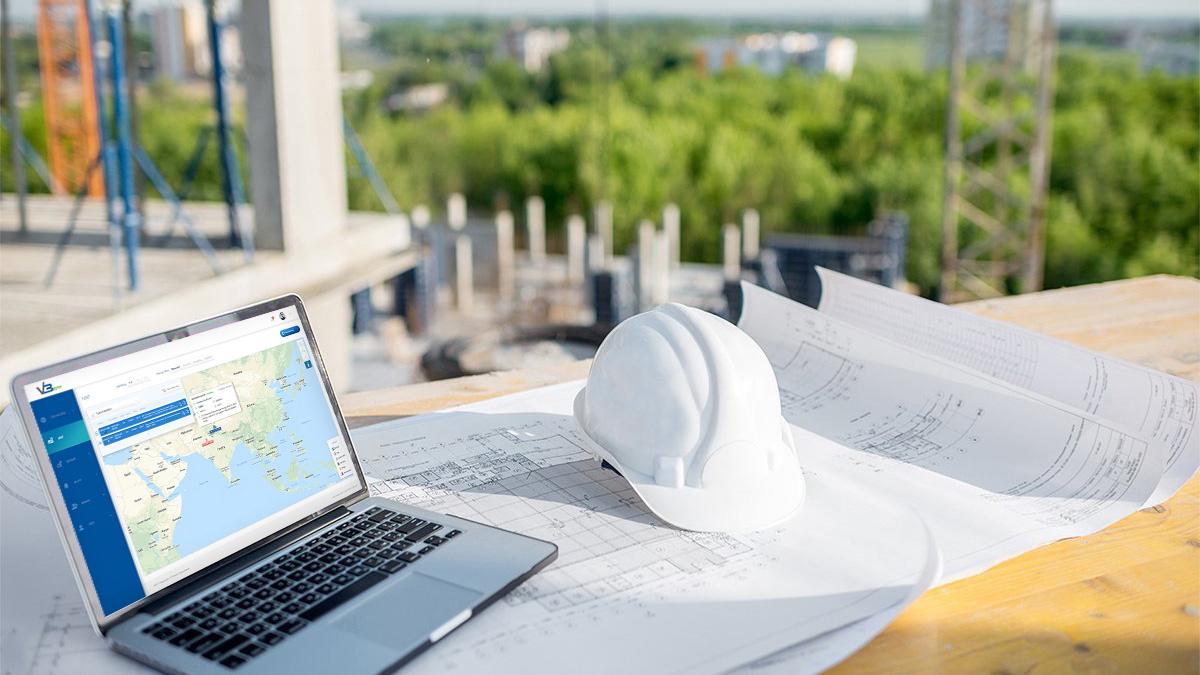How Fleet Management Helps with Tracking in the Construction Industry
February 25, 2022
Construction companies have to keep track of a lot of things, such as their trucks, equipment and materials, to ensure that they are efficiently dispatching their resources to sites with minimum delay. This changes with the help of a fleet management software, as it allows them to easily monitor everything that goes on in their construction projects, saving them time and money while optimizing the manpower and resources needed.
What is fleet management?
Simply put, fleet management is the process of managing a company’s fleet of vehicles. This includes planning, organizing, and tracking of vehicles in order to optimize performance and efficiency. A fleet management software typically involves a GPS vehicle tracking software, which allows real-time tracking of all vehicles. This can help with tasks such as dispatching drivers, routing deliveries, and monitoring fuel consumption.
Fleet management solutions for the construction industry
Using a fleet tracking software to help with fleet management will allow construction companies to maintain real-time visibility over their assets at all times and allow them to improve resource allocation to sites. A fleet tracking software can help with efficient route planning, tracking of construction assets, and monitoring of fuel consumption. Overall, implementing a fleet tracking software can be highly useful for the below reasons:
- Driver tracking:
Construction fleet managers can plan driver schedules more effectively in response to site order requests by tracking driver locations and trip histories to learn what are the most optimized routes for fastest dispatch. Driving behaviour can also be monitored to ensure drivers are not being reckless while driving and compromising safety standards while at the same time preventing vehicle misuse.
- Asset tracking:
With a fleet tracking software, construction companies can keep track of where their equipment and materials are at all times. Doing so will let them optimize resource allocation most efficiently, whether it is to dispatch construction vehicles for load moving or excavating, or to send construction equipment and building materials to locations where resources are low.
- Communication tools:
Having effective communication between the management team and on-site construction drivers will greatly improve the speed of construction operations. Instead of having to frequently contact individual drivers for their vehicle locations or check in on project statuses, fleet managers will be able to instantly view vehicle asset locations on the map using a fleet tracking software, as well as track resource dispatch status in real-time.
Benefits of fleet management for construction companies
Effective fleet management can provide construction companies with many benefits, such as reduced fuel consumption and consequently lesser fuel emissions, improved safety, and also increased operational efficiency.
- Improved efficiency: Construction fleet managers have to coordinate vehicle and equipment dispatch efficiently in order to keep construction projects on schedule. With the help of a fleet tracking software, managers can find the best routes and send the nearest available drivers to fulfil site requirements. This increases the construction company’s ability to respond to urgent changes in site requests, and enables them to quickly adapt on the go without delays.
- Reduced emissions: Fleet tracking software usually comes with route optimization and fuel tracking features, which construction fleet managers can utilize to plan routes which are both fuel and time-efficient. As fuel is a large fleet operating expense, construction companies can hence gain more cost savings by monitoring their fuel expenses. Besides this cost-savvy benefit, it also provides some of the most effective means to achieving global goals, such as addressing climate change and creating a sustainable future.
- Increased safety: With real-time GPS tracking, construction companies can monitor if their drivers are prone to reckless driving and prevent accidents by discouraging such behaviour. They can also track if drivers are idling or are travelling outside of designated site areas via real-time alerts. This will enable construction companies to reduce safety risks and ensure productivity at the same time.
- Improved monitoring of truck operations: Fleet tracking software can be integrated with IoT sensors to monitor truck loads for quality control purposes and for speeding up operations. For example, cement mixer drum sensors and temperature sensors can be used to monitor cement truck drum rotations as well as the temperature of concrete mixes. Construction fleet managers will then immediately be notified via alerts if there are issues and be able to rectify them quickly.
- Lowered maintenance repair costs: Besides fuel expenses, truck breakdowns can also be extremely costly. Regular vehicle maintenance will help to maximize the lifespan of your construction fleet, thereby reducing hefty repair costs, breakdown downtime, and lowering the likelihood of accidents caused by vehicle malfunctions. With a fleet management software, construction fleet managers will be able to track all vehicle servicing schedules with ease without accidental negligence costing them more later on.
How does a GPS vehicle tracking software work
In a GPS vehicle tracking software, GPS devices which are installed on vehicles will communicate with a GPS satellite network to pinpoint their exact locations. These GPS devices will also gather crucial fleet data and transmit it in real-time to an online fleet management software system and presented in charts and graphs. Construction fleet managers are then able to conveniently access this data via their computer or mobile device, and see at a glance where each vehicle is located on the map as well as where they are headed next. This level of real-time fleet visibility and information will provide construction companies with the agility and efficiency needed to control their daily fleet operations with ease.
Conclusion
Challenges faced by construction companies typically include minimal fleet visibility, poor driver communications leading to a lot of downtime in vehicle coordination, inaccurate budgeting and forecasting of fleet expenses, and low productivity on top of disruptive workflows. That is why so many leading construction companies are invested in having solid fleet management software infrastructure to support their workflows and business decisions – because they understand how important it is to have good fleet management if one wants to maintain competitive and work within construction budgets.
A fleet management software can provide construction companies with all the tools needed to oversee and control their daily operations, forecast planning for future construction projects and minimize the impact of their construction operations on the environment. In a nutshell, fleet management software will help construction companies save time and money while contributing to sustainability initiatives. Talk to us at V3 to find out how we can design the best solution to support your construction fleet operations today.

